Although many people have heard of the human cadaver “body farm” in East Tennessee, Middle Tennessee State University boasts one of only a handful of outdoor animal decomposition laboratories in the United States.
Tucked away in the corner of a nondescript field in the Blackman area of Murfreesboro, the MTSU Outdoor Forensic Facility, or MOFF, is a 12-acre laboratory where biology professor Yangseung Jeong does research and experiential learning opportunities using animals instead of human specimens.
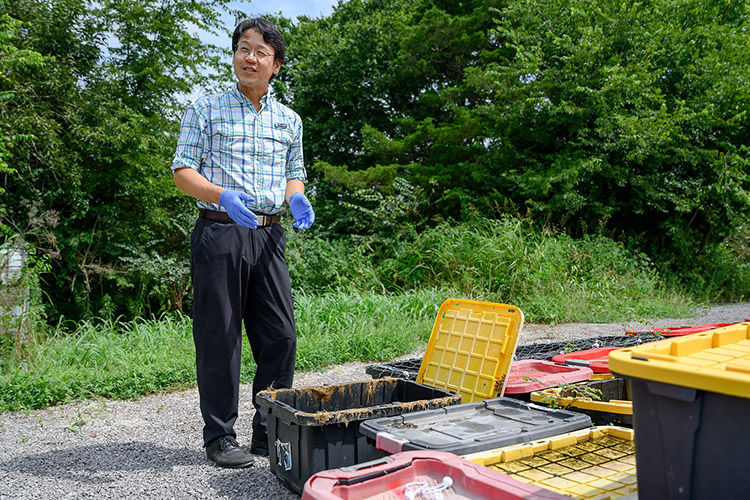
“I train students and provide students with hands-on practice for search and recovery,” said Jeong, who came to MTSU in 2017 to work with the interdisciplinary Forensic Science Program in the College of Behavioral and Health Sciences. “I also invite outside people for workshops or seminars. I bring them here and provide them with training.”
If you’ve ever wondered what happens to roadkill, Jeong has found a way to put the discarded carcasses to good use.
“When I moved to MTSU, I wanted to have my own decomposition facility for my taphonomy research,” said Jeong, who established MOFF in 2018. “My current research is focused on what kind of scavengers are active in this area and what kind of evidence they leave on skeletal materials.”
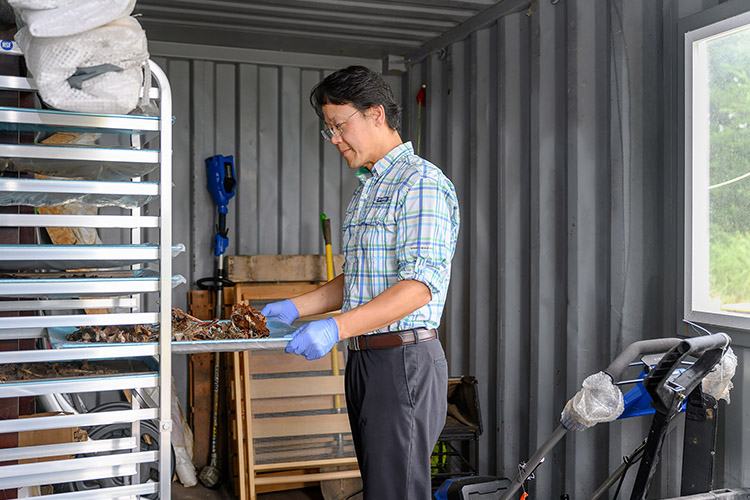
Taphonomy is the study of the processes (such as burial, decay, and preservation) that affect animal and plant remains as they become fossilized, according to Merriam-Webster Dictionary.
Over the past five years, Jeong’s received around 70 carcasses — mostly small mammals — from racoons and opossums to deer, coyote and pigs.
Large storage tubs provide decomposition receptacles for carcasses. Each is covered in chicken wire to provide air circulation and access for insects. In the open air, all soft biological material can be removed from bones within approximately three to five days at the earliest.
Jeong also sets up experiments with enclosed carcasses, which slows down the decomposition rate. Outside temperatures also affect the speed at which putrefaction occurs.

Once bones are mostly free of organic material, Jeong sorts and dries the bones, then stores them in his lab on the MTSU campus. He’s already amassed dozens of specimens, which help him teach students about how to differentiate between animal and human bones, as well as how to discern the marks of various types of scavengers.
MOFF also serves as a procurement site for animal bones, which Jeong adds to his collection that he began years ago while earning his doctorate from the University of Tennessee, Knoxville
A secondary laboratory site on the property provides training for forensic taphonomy students.
“I have placed deer carcasses out so students can come out and practice how to search and recover skeletal remains,” Jeong said. “We have to know whether these are animal bones or not. I train student how to differentiate between animal and human bones.”
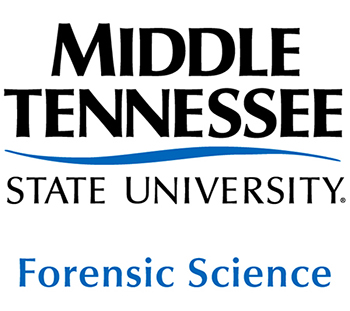
Although Jeong has been the first to establish such a facility at MTSU, the South Korean native’s work with cadavers dates back to his doctoral research at the Forensic Anthropology Center at the University of Tennessee, Knoxville.
Previously, Jeong worked for the Department of Defense POW/MIA Accounting Agency in its Central Identification Laboratory where his primary duties involved identifying skeletal remains of servicemen killed during the Korean War as well as the attack on Pearl Harbor.
Jeong earned the prestigious Ellis R. Kerley Research Award in 2022 for his work in forensic anthropology. He received the award for developing a new pair-matching method to segregate commingled skeletal elements into individuals using 3D computed tomography, or CT, which allows researchers to view and inspect internal and external structures of an object in a 3D space.
To learn more about MTSU’s Forensic Science Program in the College of Behavioral and Health Sciences, visit https://www.mtsu.edu/programs/forensic-science/ or email professor Frank Bailey, director of the program, at frank.bailey@mtsu.edu.
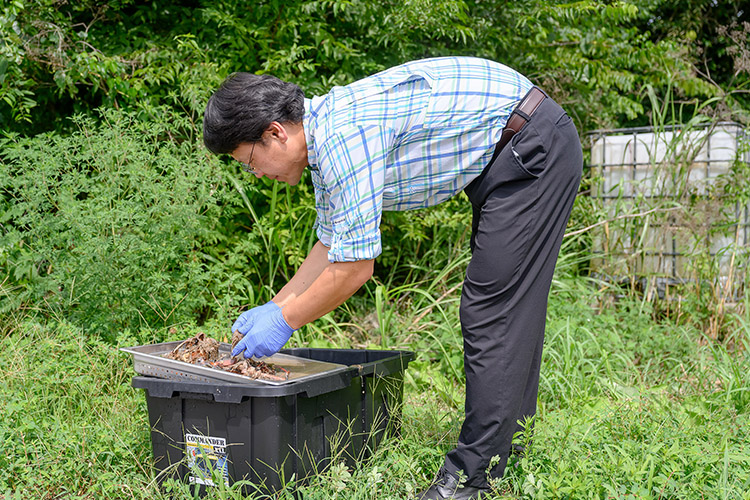
— Nancy DeGennaro ( Nancy.DeGennaro@mtsu.edu)

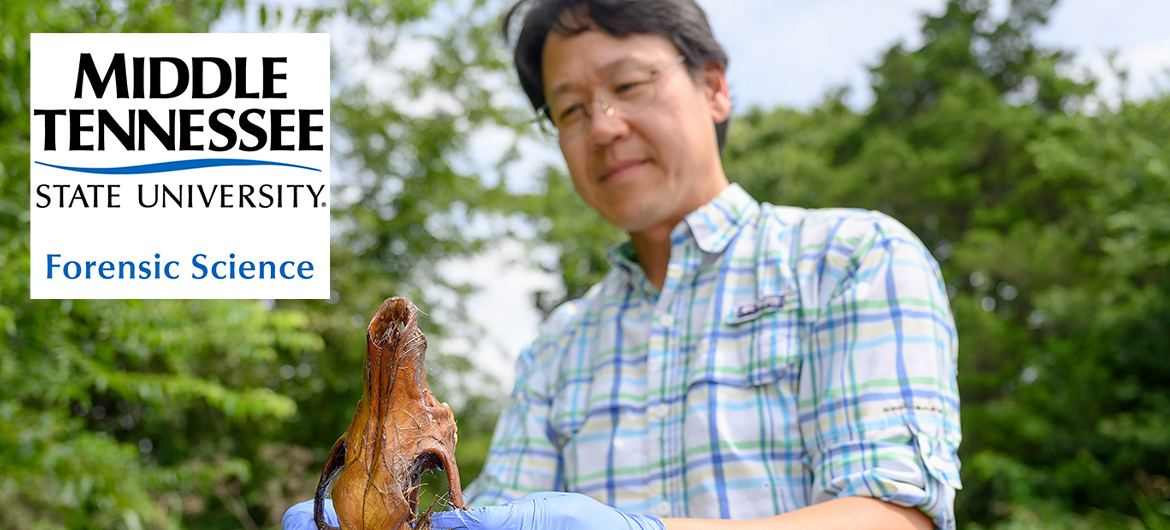
COMMENTS ARE OFF THIS POST